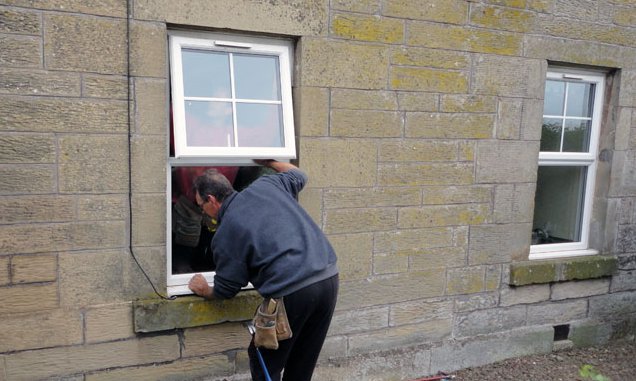A good set of windows will last for decades, providing consistent draught exclusion and insulation throughout that lifespan. But as with all structures of this sort, even the most stringently manufactured window will one day begin to break down. To ensure that your home enjoys the best possible security and energy efficiency, it’s vital that you invest in a replacement set when your windows reach the end of their lifespan.
Signs Your Windows Need Replacing
But exactly how do we know when it’s time to call time on that trusty double-glazed window set? There are a few common signs which can help clue us in. We’ve touched upon the signs that double glazing is failing in a previous blog, but we’ll briefly recap them here:
Physical Damage
Begin by examining the window itself. Is it in good shape? Are the seals still intact? Does it open smoothly? If your window has been cracked, then it might be possible to get it repaired. However, if the window was already a little long in the tooth, it will probably make more sense to look for a replacement instead.
Discolouration
In the case of uPVC windows, you’re looking for a yellowing which occurs when the plastic is exposed to direct sunlight. Over the years, all of that UV can take its toll on certain older sorts of uPVC. Happily, modern stuff can withstand a great deal more before it starts to discolour.
If you’re replacing a timber window, then you’re looking for signs of warping and rotting. You might be able to address this with a little bit of preventative maintenance: sanding and refinishing can work wonders. Eventually, however, you’re going to have to replace.
Condensation
While condensation on the inside of a window during winter indicates that the panel is performing well, the same isn’t true of condensation that forms between the panels of your double glazing. This space is built to be sealed. If any moisture has gotten inside, then that means that the seal has failed, and all of the heat-preserving gas has leaked out. This means the energy-retention of your window will have plunged.
Can You Replace Windows in the Winter?
A necessary evil when it comes to window replacement is that you’ll need to remove the old set before installing the new one. As such, there will be a short period when your home is open to the elements. If this period occurs during cold weather, then your house will become very cold, very quickly. As such, many installers will recommend against replacing during winter.
However, if you plan competently, there’s no reason that you can’t get your windows replaced at just about any time of year. We are, after all, only talking about a short interval where you won’t have any window at all. Just be sure to check the weather forecast on the day in question, and don’t be afraid to push things back if there’s a blizzard incoming.


